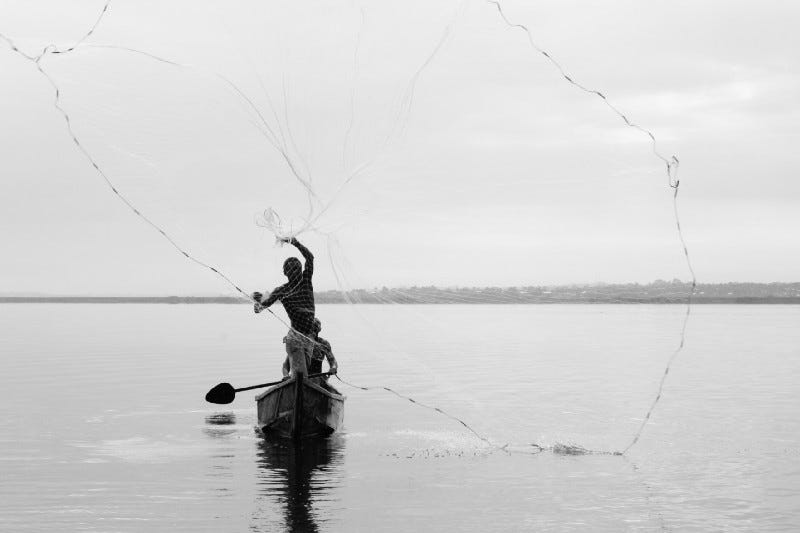Beyond Arrogance and Self-Doubt
They're not enemies, they're best friends

PIANO TEACHERS AND GOOD SAMARITANS
A piano teacher shows a five-year-old how to play a scale. A thought flits into her mind: ‘I’m much better at piano than this five-year-old’. She automatically dismisses the thought, not because it’s untrue but because it’s uninteresting. She keeps teaching.
A woman encounters a homeless man and gives him some money. She doesn’t say ‘I’m better because I have more money’, ‘I feel guilty for having more money’ or ‘I can’t accept that I have more money — is there any chance he has some money I don’t know about?’ She just gives him some money.
The piano teacher is older and more experienced than her student. The woman in the street is luckier than the homeless man, whether because of her genes, her upbringing or the general circumstances of her life.
Neither woman takes any credit for being in a position to help. Neither of them questions whether or not they’re really in a position to help. They just help.
Sometimes we stop ourselves being of emotional or spiritual service to someone because we don’t want to be presumptuous. We can’t stand that we know more about something than they do, have established some better habits, have more robust mental health. We’re so careful to avoid the trap of arrogance that we deliberately incapacitate ourselves with self-doubt. We end up with a headache, and our friend goes unhelped. Nobody wins.
Self-doubt isn’t the opposite of arrogance. It’s its tennis partner.
Pride and self-loathing are mutually dependent, yin and yang. Their mission in life is to rally back and forth all day, knowing full well that they’re evenly matched and neither of them will ever win the tournament. One thought attacks us, so we escape the pain by puffing ourselves up. Another thought flatters us, so to avoid the Great Sin of Arrogance we prick our own balloon and put ourselves down.
Humility doesn’t have time for the eternal arrogance/self-doubt rally. You aren’t threatened when you’re worse than someone in some way: great, you can learn from them. You aren’t threatened when you’re better than someone in some way: great, you can teach them.
Humility takes a good look at what it has to work with, then it gets to work.

ARCHAEOLOGISTS AND GARDENERS
When an archaeologist finds a precious artifact, she doesn’t go around bragging to people that she made it herself. She immediately begins studying the artifact and learning from it.
The gardener’s not ashamed of the bag of manure in his garden. He wears gloves so he can handle it safely, then he gets to work spreading it around so beautiful things can grow from it.
What if we treated our good and bad attributes like stuff we use rather than stuff we are?
Self-doubt and arrogance are both games the ego plays to convince itself it exists. I’m great, therefore I am. I’m worthless, therefore I am. But am I great though? But am I worthless though? I don’t know, but the more I think about it the more I can prop up my existence. The more I compare myself to others — whether favourably or unfavourably — the more solid I feel. I’m terrified of not existing.
Humility’s too busy getting out there and doing things to worry about itself either way.
As far as humility’s concerned gifts and emotional leanings, virtues and vices are just raw materials. You don’t use raw materials to draw all kinds of conclusions about yourself, you just use them. You take all that time you would have spent flattering or shaming yourself and spend it enriching the world around you.
When you don’t identify with your personality you can actually enjoy it, in the same way and for the same reason that you enjoy the Eiffel Tower — because it’s there, and it’s beautiful.



So much I'm learning from you, very well written. This spoke to me "Humility takes a good look at what it has to work with, then it gets to work." - Wabi Sabi